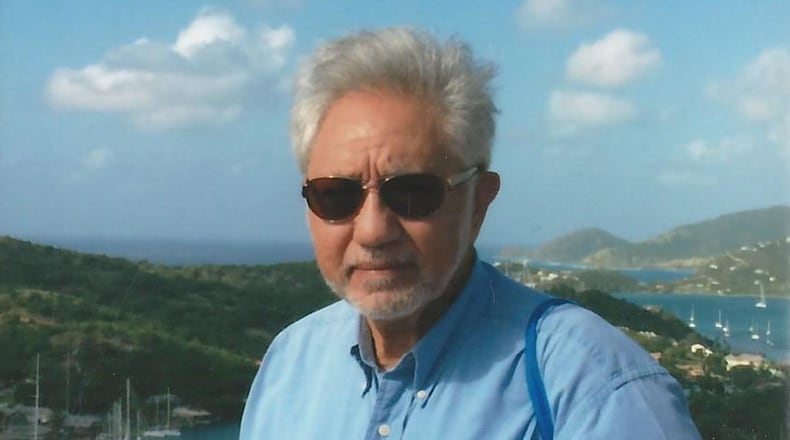Dr. Saleh Zaki spent more than four decades in Atlanta serving as the Fulton County Chief Medical Examiner and teaching at Emory University. But the story of his years as a medical student in his native Egypt reads like an international thriller.
He was in medical school in the late 1950s and early 60s, speaking out against a repressive government. After the 1967 “six-day war” with Israel, the Egyptian government began arresting its critics and placed Zaki’s name on a list of subversives. Zaki, his wife and two small daughters made a daring escape from Egypt to Yemen.
“He was an amazing man, and the way he and my family escaped from Egypt and eventually got to the United States is a story of real bravery and perseverance,” said his daughter Maha Zaki. “He was a young intellectual in Egypt, and he and his friends were publicly speaking against a country that wasn’t fair. They were being punished for it. One of his best friends just disappeared for two weeks, and it turned out he had been taken by government forces, tortured and then thrown back out on the street. It terrified my Dad, and he decided we had to leave Egypt. It had become too dangerous to stay. He planned our escape to Yemen.
“It was against the law at that time in Egypt for an entire family to leave the country, so under the guise of taking a vacation, my mother and I went to Yemen first, then my baby sister was sent to Yemen, then we waited for my father to join us,” she said. “He arrived in Yemen with less than $10 and no family belongings.”
Saleh A. Zaki, M.D., Ph.D., 80, died on Oct. 17. He was born in Cairo on Oct. 25, 1935, received his medical degree from the Cairo University Faculty of Medicine in 1959 and spent a year interning at Cairo University Hospital. When he received a British Counsel scholarship in pathology at the University of Birmingham, England, he and his family moved to England. He pioneered the study of rheumatic heart disease, utilizing state-of-the-art electro-microscopy, and his doctoral thesis was the definitive study on the subject. In December 1964, he was awarded his Ph.D. in pathology.
Zaki returned to Egypt in 1965, then fled to Yemen two years later. He left Yemen to be a senior tutor in pathology at Queens University Belfast, Northern Ireland. Zaki and his family immigrated to the United States in 1969 and settled in Atlanta. He received his certification from the American Board of Pathology in 1972 and joined the Fulton County Medical Examiner’s office in 1973. In 1976, he became the first person in Georgia to receive board certification in forensic pathology.
Zaki also became an American citizen in 1976.
He became the Fulton County Chief Medical Examiner in 1988, serving 10 years. He led the effort to create model forensic science institutions in Fulton County and 155 counties in Georgia. He forged partnerships with state and local agencies and spearheaded legislative reforms including the Georgia Death Investigation Act. He reorganized medical examiner services into a diverse team of specialists including anthropologists, dentists, nurses, emergency medical technicians and law enforcement. Zaki advocated for and instituted forensic training programs and led the effort to fund and create a state-of-the-art medical examiner’s facility that opened in 1999. The Fulton County Medical Examiner’s Center administrative building is named for Zaki.
Dr. Michael Heninger, Fulton County associate medical examiner, said Zaki was his mentor when he began his forensic pathology training.
“The main things that stand out for me in working with Dr. Zaki are that he was very interested in moving death investigation training along for the whole state and that he wanted a new facility for the medical examiner’s office,” recalled Heninger, a former professor of pathology and laboratory medicine at Emory University. “Rewriting and modernizing the state’s Death Investigation Act were also very important to him. He definitely accomplished his top priorities.”
Zaki continued to teach until 1998 at Emory, along with the University of Calgary, Alberta Canada; University of Alabama and Morehouse School of Medicine. He retired with plans to pursue his medical interest in surgical pathology, build a lake house and learn to fish. But his wife, Afaf, was diagnosed with cancer, and he spent the following four years caring for her. After Afaf’s death, Zaki met and married his second wife, Elena, a Russian physician. They were married for 10 years before his death.
In addition to Elena Zaki and Maha Zaki of Atlanta, Zaki is survived by daughter Karaz Zaki of Atlanta, and a brother, Khaled Zaki of Cairo, a well-known movie actor and producer in Egypt and the Mideast. A funeral service was held Friday with burial at Arlington Memorial Park. The family requests that donations be made to the Emory Winship Cancer Institute or the Alif Institute.
About the Author
The Latest
Featured

